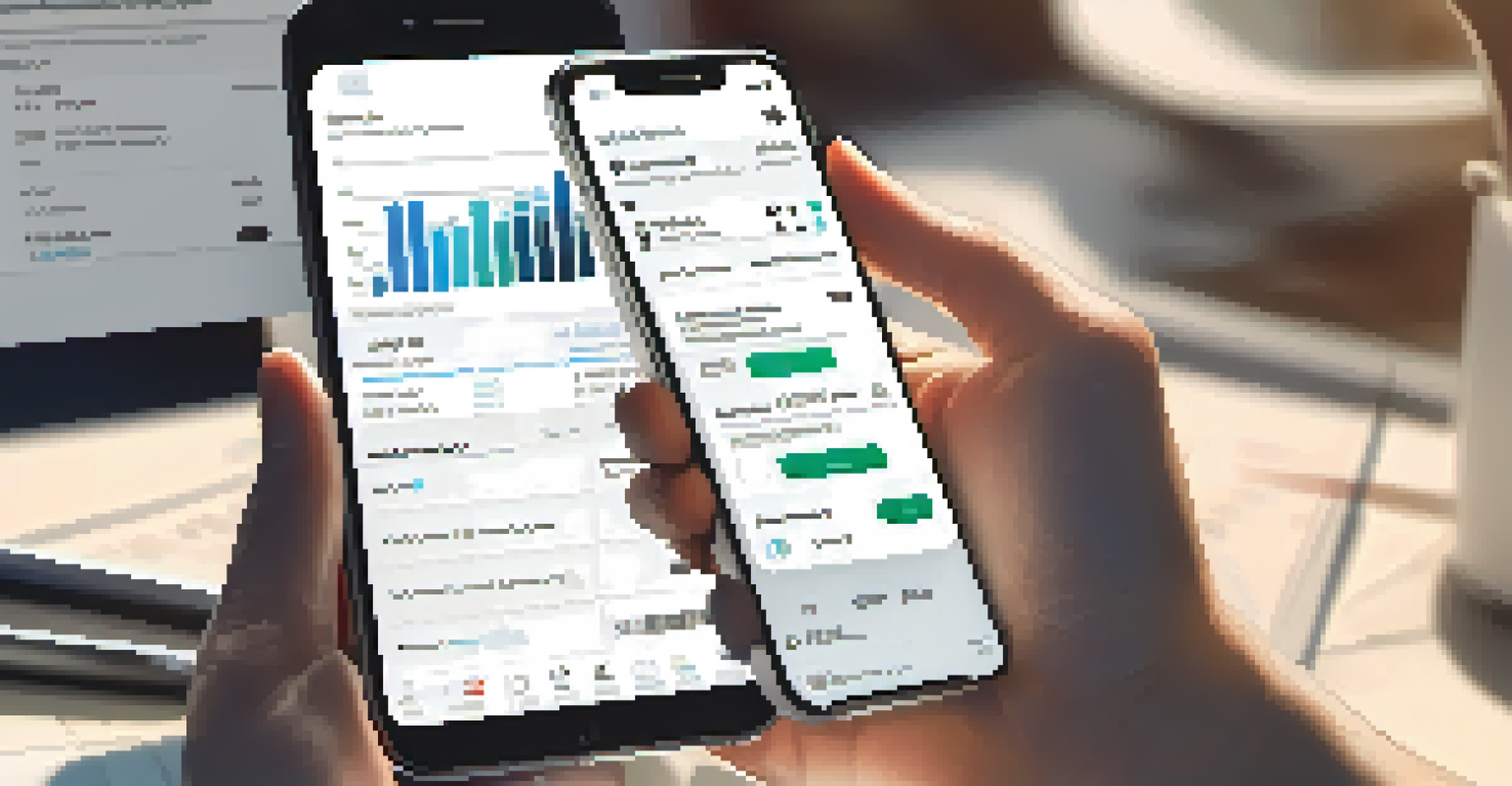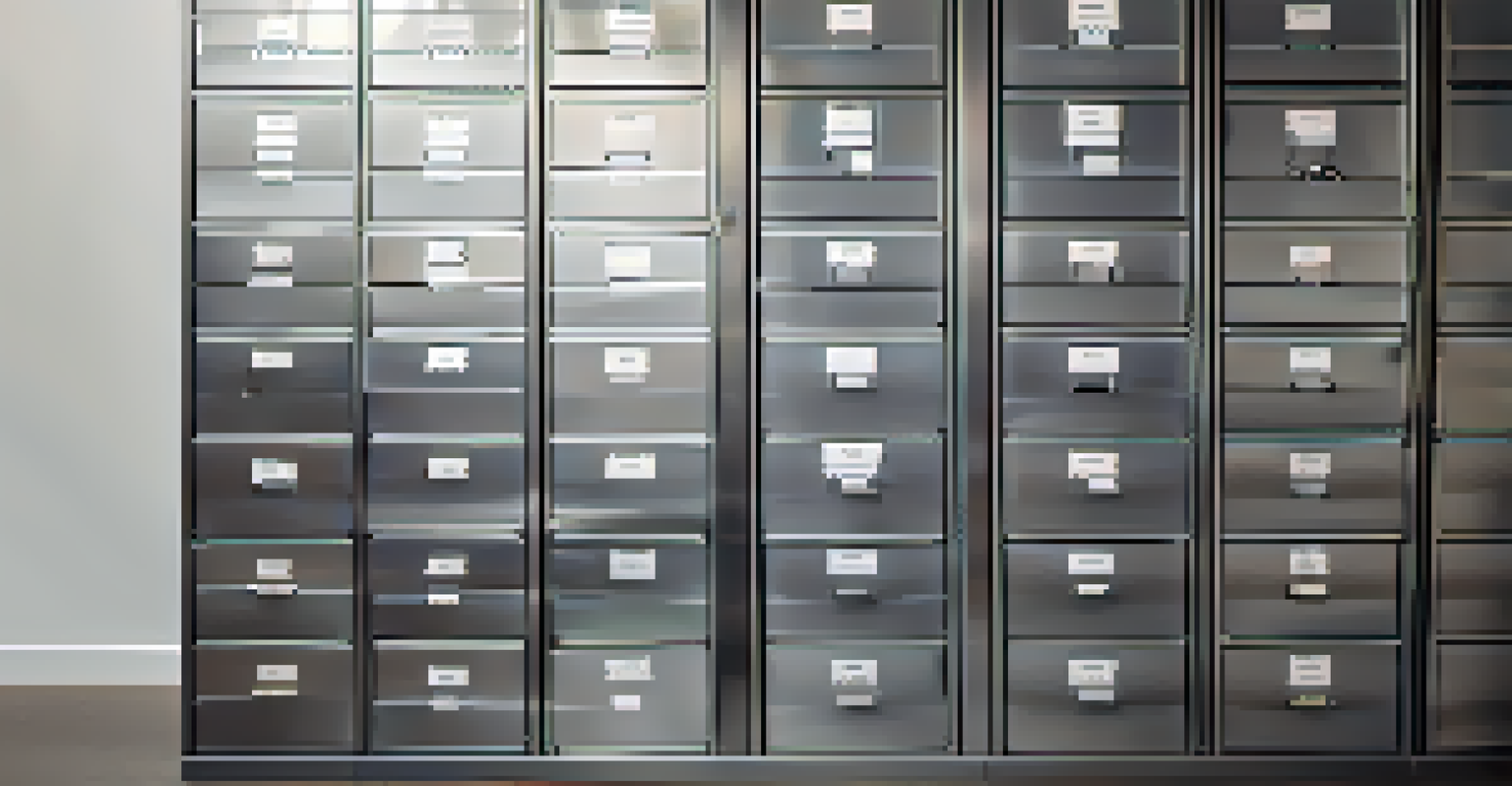Best Practices for Keeping Rental Property Records

Understand the Importance of Keeping Records
Keeping accurate records for your rental property is crucial for several reasons. It helps you track your income and expenses, ensuring you are prepared come tax season. Moreover, a well-organized system can save you time and stress, allowing you to focus more on your tenants and property management.
In business, what’s dangerous is not to evolve.
Imagine trying to find a needle in a haystack – that’s what it feels like when your records are disorganized. Proper record-keeping helps you avoid unnecessary headaches and potential legal issues. Plus, having everything in order can also boost your credibility as a landlord.
Ultimately, solid record-keeping provides you with valuable insights into your property’s performance. By analyzing this data, you can make informed decisions that enhance your investment, whether it’s adjusting rent prices or identifying areas for improvement.
Organize Financial Records Effectively
Financial records are at the heart of rental property management. Keeping track of income from rents and expenses like repairs or utilities is essential for assessing your property's profitability. A simple spreadsheet can do wonders for monitoring this information.

Consider categorizing your expenses into sections such as maintenance, utilities, and property management fees. This way, you not only streamline your data but also make it easier to spot trends over time. For instance, if maintenance costs are climbing, it might be time to consider renovations or upgrades.
Importance of Accurate Record-Keeping
Keeping organized records is essential for managing rental properties effectively and avoiding legal issues.
Moreover, retaining receipts and invoices is vital. These documents serve as proof of your transactions and can be invaluable during tax time or if an audit occurs. Organizing them digitally can also save space and ensure they are readily accessible.
Use Technology to Simplify Record Keeping
In today’s digital age, leveraging technology can significantly simplify your record-keeping process. Property management software can help automate income tracking, expense logging, and even tenant communications. This not only saves time but also reduces the likelihood of human error.
The secret of success is to be ready when your opportunity comes.
Consider apps that allow you to take photos of receipts and store them in the cloud. This way, you can access your records anytime, anywhere, which is especially useful for busy landlords. Plus, cloud storage means you won’t lose important documents due to a misplaced file.
Many software solutions also offer reporting features, providing insights into cash flow and overall property performance. These tools can be game-changers for landlords who want to stay on top of their finances without getting bogged down in paperwork.
Maintain Detailed Tenant Records
Keeping thorough records of your tenants is just as important as maintaining your financial documents. This includes their lease agreements, communication history, and payment records. Having this information organized can be a lifesaver in case of disputes.
Think of tenant records as your go-to reference guide. If a tenant raises a concern, you can quickly review past interactions to understand the context. This not only helps resolve issues more efficiently but also demonstrates professionalism and reliability.
Leverage Technology for Efficiency
Utilizing property management software and apps can streamline record-keeping, saving time and reducing errors.
Moreover, tracking tenant information can aid in future rental decisions. For instance, knowing when leases expire can help you plan for renewals or marketing for new tenants well in advance, ensuring your property remains occupied.
Regularly Review and Update Your Records
It’s easy to fall into the trap of letting your record-keeping slide once you’ve set it up. However, regular reviews and updates are essential to ensure accuracy. Consider scheduling a monthly or quarterly check-in to go through your records; it can save you from larger headaches down the line.
During these reviews, you can also assess your property’s performance and identify any discrepancies. For example, if there’s a significant gap between expected rental income and actual income, it might indicate a need for action, whether it’s adjusting rent or addressing tenant issues.
Additionally, staying proactive with updates means you’re always prepared for situations like a tax audit. Keeping everything current not only helps you comply with regulations but also gives you peace of mind knowing you’re organized.
Understand Legal Requirements for Record Keeping
Every landlord has to navigate the legal landscape of property management, which includes understanding record-keeping requirements. Many jurisdictions have specific laws about how long certain records should be kept, such as tenant applications, lease agreements, and maintenance records.
Being aware of these regulations can protect you from potential legal troubles. For example, if you’re ever taken to court over a tenant dispute, having the necessary documentation can make all the difference in your case.
Regularly Update Your Records
Consistently reviewing and updating records ensures accuracy and prepares landlords for audits and disputes.
To stay compliant, consider consulting with a legal expert or using resources provided by local landlord associations. This knowledge empowers you to manage your property confidently and responsibly.
Create a Disaster Recovery Plan for Records
In the event of unexpected disasters—be it a fire, flood, or cyber-attack—having a disaster recovery plan for your records is crucial. This means not only backing up digital files but also having physical copies of important documents stored safely.
Think of it as an insurance policy for your information. By ensuring that records are backed up in multiple locations, you can minimize the risk of losing everything in one fell swoop. For instance, consider using both cloud storage and external hard drives for redundancy.

Additionally, make sure to regularly test your backup systems to confirm that everything is functioning as intended. This proactive approach ensures that you can recover quickly and continue managing your property without missing a beat.